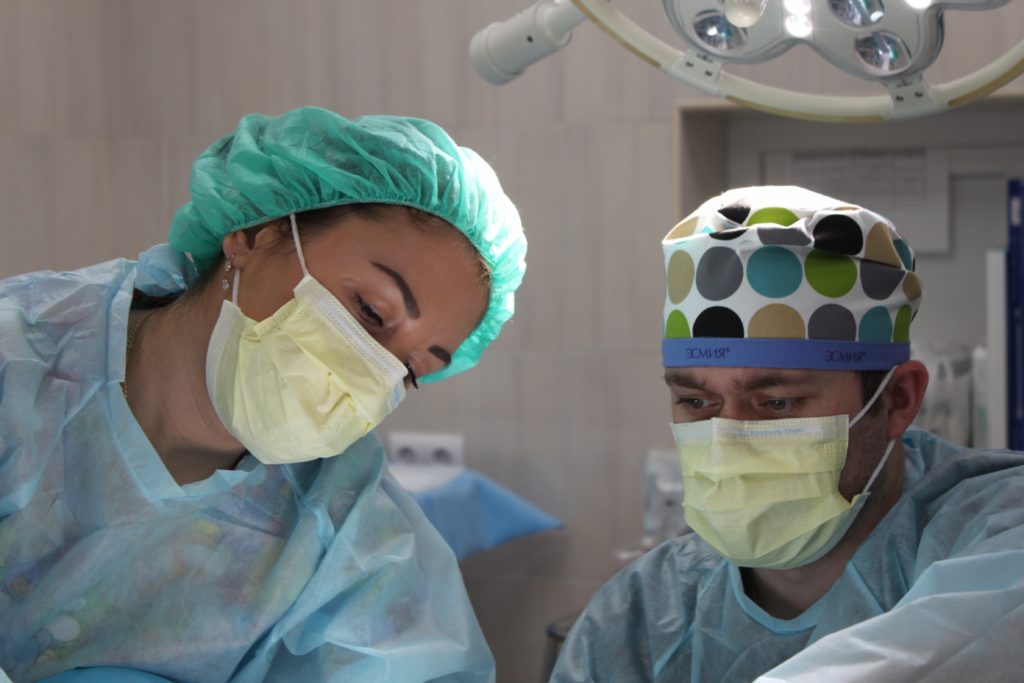Are you considering the risk of surgery for yourself or an older family member as her healthcare agent? Consider this: a team of researchers recently compiled a list of 277 risky procedures for older adults. They hope it’s useful in preparing for the potential of unwanted outcomes. The study was published in JAMA Surgery and was generated by using admissions data of patients 65 years and older.
Considerable’s recent article entitled “These 10 surgeries are considered “uniquely high risk” for older adults” says that scientists found 10 surgeries to be especially problematic for older patients.
- Adrenal Gland Removal (Adrenalectomy). This is the removal of one or both of the adrenal glands which produce hormones necessary in carrying out daily bodily functions. A tumor can form on the glands and causes increased hormone production. When this happens, the gland(s) needs to be removed. The typical recovery time after this surgery is two to six weeks. The risks include blood clots, infections and high blood pressure.
- Plaque Buildup Removal from the Carotid Arteries (Carotid Endarterectomy). This is a procedure that removes plaque buildup from inside a carotid artery in the neck. It is performed to restore blood flow to the brain when there are symptoms of reduced blood flow. A carotid endarterectomy is typically preventative of a stroke and removes blockages that might trigger one. The risks include clotting, stroke, or death, but taking anti-clotting medicines before and after can reduce these risks.
- Arm Blood-Vessel Replacement (Peripheral Vascular Bypass Surgery). Blood vessel replacement in the arm improves blood flow when one or more of the arteries become narrowed or blocked. A blood vessel from another part of the body or a synthetic blood vessel is used to replace the damaged blood vessel. Risks include irregular heartbeat, infection and death.
- Resection or Replacement of Abdominal Veins. When a blood vessel causes tissue injury in the abdomen, some of the tissue might need to be removed or replaced. Risks can include pulmonary embolism, infection and excess bleeding.
- Varicose Vein Removal. These veins form in the legs, when the valves in the veins aren’t functioning properly. This can cause pain, blood clots, or bleeding. A doctor might recommend varicose vein removal, which has risks that include nerve injury, heavy bleeding and infection.
- High Gastric Bypass. Weight loss surgery changes how the stomach and small intestine handle the food a person eats. There are several criteria that must be met to receive this procedure. High Gastric Bypass can pose major risks and complications, such as malnutrition, perforation of stomach or intestines and dumping syndrome (when food gets “dumped” directly from the stomach pouch into the small intestine without being digested).
- Proctopexy (Rectal Prolapse Surgery). This procedure is performed to correct stool leakage, inability to control bowel movements (fecal incontinence), or obstructed bowel movements. This procedure helps put the rectum back in place. The risks can include damage to nearby nerves and organs, narrowing (stricture) of the anal opening and development of new or worsened constipation.
- Bile Duct Excision. If a tumor is blocking the flow of bile to the bile ducts, a surgeon may remove them. Nausea, jaundice, or a high temperature (over 101) are potential risks.
- Urinary Reconstruction. Sometimes a person’s urinary bladder is removed because of cancer, a non-working bladder, or another medical reason. This procedure creates a new way for urine to exit the body when a bladder is not present. A risk of this procedure is urine backing up into the kidneys, causing infections, stone formation, or organ damage over time.
- Ureter Repair. When the ureter is injured (i.e., scar tissue forms after an accident or surgery), more surgery might be required to repair it. Complications include chest pain, blood clots and trouble urinating.
Before any planned procedures, be sure your Medical Directive and powers of attorney are up to date. Review any needed updates with an estate planning attorney.
A note on dental exams. Dental examinations should be considered before any surgery—but they’re especially important for certain heart surgeries, along with joint replacements that use implanted devices. With both joint replacement and cardiovascular valve replacement surgery, the risk of the bacteria from the mouth traveling systemically to the surgical site is very high. During a dental procedure, the gum tissue can be broken and that lets bacteria from the mouth to enter the bloodstream. The bacteria can go to any foreign material in the body and attach, frequently developing a biofilm. This makes it very difficult to treat with antibiotics alone. As a result, surgical removal may be required for complete eradication.
Reference: Considerable (Nov. 4, 2020) “These 10 surgeries are considered “uniquely high risk” for older adults”



